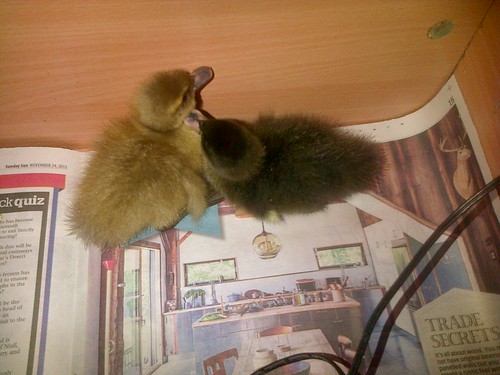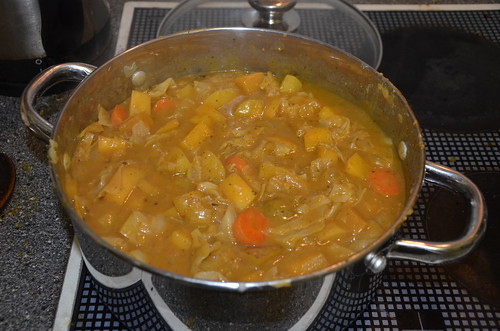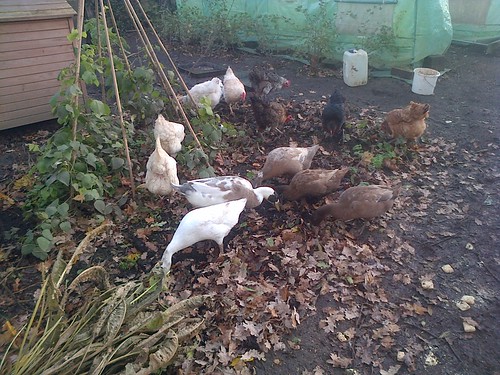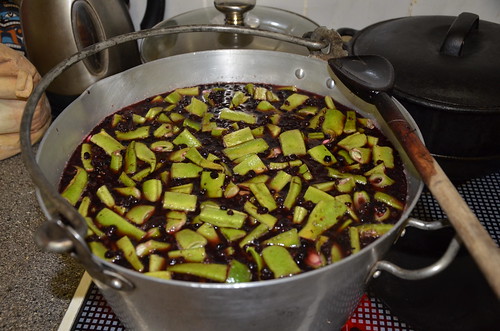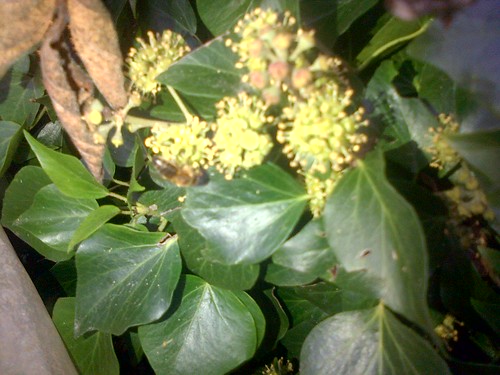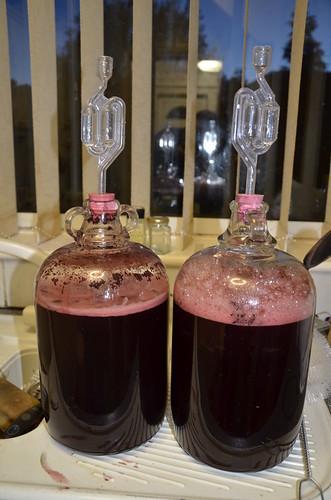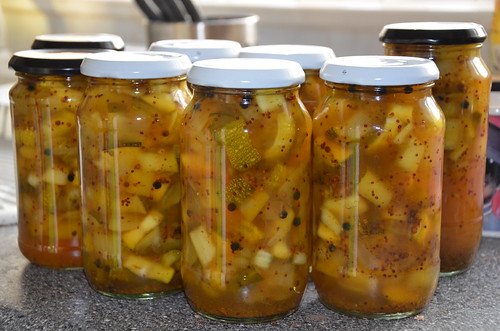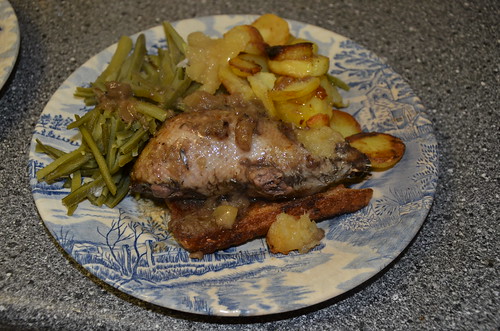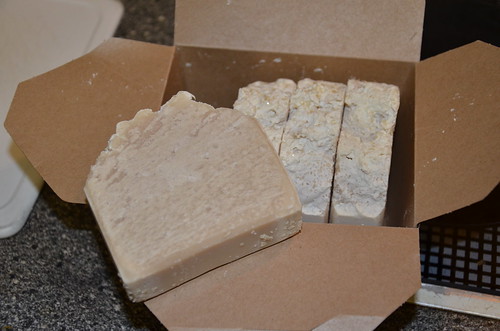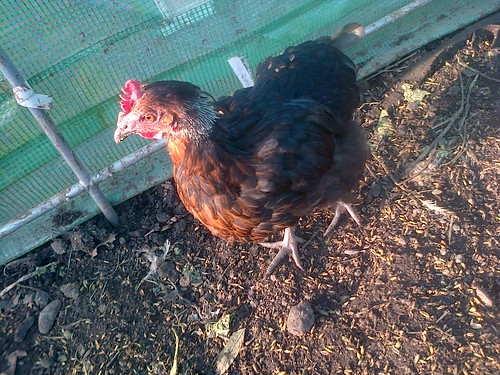
We have had a rotten week with the ducks. Last week, the older group of ducks suddenly decided to stop using their duckhouse in the evening. That meant they would be out on the allotment overnight and vulnerable to foxes. No matter what we did, we couldn't get the ducks to reoccupy their house. Sure enough, next morning two of the ducks had gone and a day later another went as well. Our second group of ducks, which we hatched in the spring, had stopped using their duckhouse over two months ago. They spend nights on the pond and for six weeks they survived the foxes until, last month, two of them fell prey to them. At that point we put another 6 duck eggs into the incubator. And then, last week, there was a terrible accident and the incubator was knicked off its stand. 4 of the eggs were smashed. It was all the more frustrating as the 28 day incubation period had only 5 days to go.
Yesterday however the remaining two eggs hatched. Last week we put another 6 eggs into the incubator rather than wait until today, after the more recent hatchings, to start them off. Hopefully there will be more ducklings just before Christmas.
And finally, the two groups of ducks on the allotment have now merged to form one. This is almost certainly because the dominant drake in the older group was one of the birds caught by the foxes. Previously he chased away the younger birds. Now the younger drake is filling the gap. A united group of 5 now spends night times on the pond, giving some protection from foxes, and we have succeeded in netting the pond each night, helping to keep the foxes at bay.
